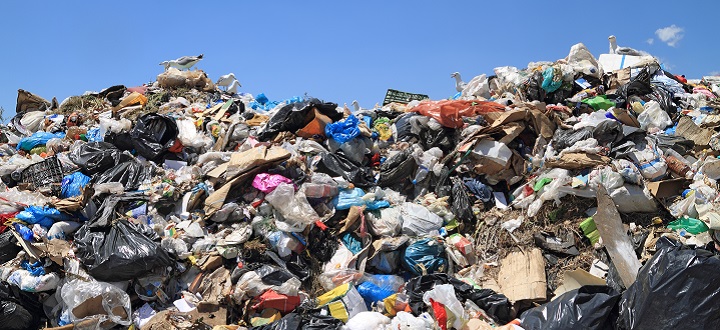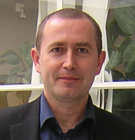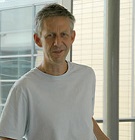From garbage to green fuel: unlocking new uses for household waste
Posted on 13 June 2017
Our researchers are working with industry on a pioneering project to convert household waste into fuel

Household waste: fuel of the future?
Our industrial experience together with the support of the University... has taken us to the brink of realising a game-changing technology”
What if the tonnes of household rubbish we produce could be used to fuel our cars, heat our houses or be turned into other useful products?
That dream is now closer to reality as the result of a pioneering partnership between steam and waste treatment specialists Wilson Bio-Chemical and our researchers.
Peter Metcalf, Research and Development Director at Wilson Bio-Chemical, explained:
“We recycle glass and metal, but 60 per cent of what we throw away is ‘biogenic’ material like food, paper, cardboard and garden waste, much of which goes to landfill.
“Over the past 16 years landfill tax has risen from £5 to £84 per tonne so there's now a big financial as well as ecological imperative to explore alternatives.”
Biorenewables Development Centre
Working with scientists at our Biorenewables Development Centre (BDC), Wilson Bio-Chemical have perfected a process which treats the unsorted waste with dry-saturated steam in a rotating auto-clave. Over a two-hour cycle the organic material is broken down into a sanitised homogeneous fibre which the company have called Wilson Fibre®.
Wilson are now exploring how the fibre can be converted into a biomass fuel capable of heating buildings and factories. High in calorific value, it could also be used to co-fire with coal in existing power plant furnaces. Other options include conversion into bio-fuels such as bio-butanol and bio-ethanol for transport fuel and a soil enhancer for agricultural use.
The company re-located to Dunnington, near York, to be near the BDC which provided premises for it to build a mini auto-clave and provided the expertise to hone this initial process.
Dr Joe Ross, BDC Director explains: “This is a perfect example of how the BDC can connect and bridge the gap between researchers and start-ups to help commercialise greener processes and products. Wilson Fibre® is the result of scientific insight, backed by practical facilities which together provide a test bed to develop and scale-up the product.”
Now, further research led by our Centre for Novel Agricultural Products (CNAP), backed by a £5m EU grant, is exploring other possibilities for the fibre.
Peter Metcalf explained:
“Using the University's expertise this is where the magic happens. Wilson Fibre is mainly cellulose which we hydrolyse to break down into sugars. We can then ferment this to make liquid butanol which can be used in cars, mixed with petrol, without any modification to the engine. The process creates hydrogen too and we're also investigating this as a source of zero emission fuel.”
A new demonstration plant at Dunnington will link the three stages together: autoclaving, hydrolysis and fermentation.
Creating a circular economy
Professor Simon McQueen-Mason from CNAP said the project opens up the possibility of a circular economy where waste is no longer a problem, but a resource. “Our research is exploring how we can produce biofuels from waste rather than crops allowing more agricultural land to go back into food production to cope with the expanding human population.
“We’re conducting this work with Wilson in the UK, but we are also carrying out similar research with communities around the world including, for example, exploring uses for waste rice straw in Vietnam and the Philippines and waste from the sugar cane industry in Brazil.”
Set to become operational in late 2018, the Dunnington plant will provide a showcase for the new processes with the aim of attracting further investment and eventually rolling out the technology to full commercial production.
Peter Metcalf said:
“There have been other autoclave systems worldwide treating waste, but we are in the vanguard of turning it into valuable end products. Others have tried and failed. But our industrial experience together with the support of the University, which has helped us in areas such as optimising the enzymes used in fermentation, has taken us to the brink of realising a game-changing technology.
“I’d like to think that within the next five years a fully commercial and large scale plant will be operational. We predict that over 90 per cent of waste can be diverted from landfill.”
This research is supported by the European Regional Development Fund, Innovate UK, BBSRC, BESTF2 and the Yorkshire Innovation Fund
The text of this article is licensed under a Creative Commons Licence. You're free to republish it, as long as you link back to this page and credit us.

Dr Joe Ross
Research Title: Director of the Biorenewables Development Centre
Over 20 years university R&D laboratory and management experience working primarily on the development of novel plant varieties

Professor Simon McQueen-Mason
Research Title: CNAP Director and Chair in Materials Biology
Research expertise in genetically modified crops, industrial products from plants, mussel adhesive proteins and plant cell walls
Discover the details
Explore the work of our Biorenewables Development Centre
Find out more about Wilson Bio-Chemical
Explore more research

A research project needed to spot trees on historic ordnance survey maps, so colleagues in computer science found a solution.

We’re using gaming technology to ensure prospective teachers are fully prepared for their careers.

A low cost, high-accuracy device, could play a large part in the NHS's 'virtual wards'.
